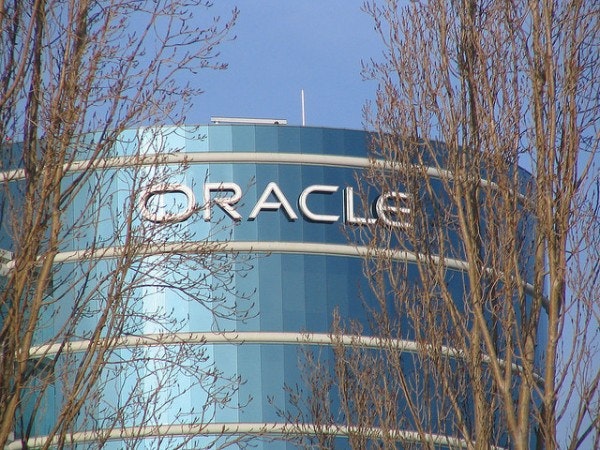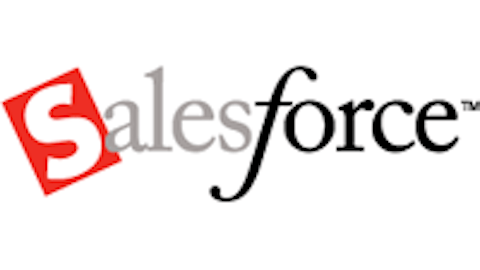Buy low, sell high. That simple investment strategy works well over and over again. An investment opportunity presents itself when a great company is beaten down in the stock market. Recently, Oracle Corporation (NASDAQ:ORCL) dropped significantly, from around $36.30 per share to nearly $32 per share, losing more than 11.8% of its total market value.

The huge decrease in its stock price was caused by its recent, weaker-than-expected earnings results. Should investors consider this drop an investment opportunity? Let’s find out.
A small earnings glitch
Oracle Corporation (NASDAQ:ORCL) generated nearly $8.96 billion in revenue and non-GAAP earnings of $0.65 per share, lower than analysts’ estimates of $9.38 billion revenue and $0.66 EPS, respectively. While revenue from software license updates and product support experienced a year-over-year growth of 7% to $4.34 billion, revenue from new software licenses and cloud software subscriptions declined nearly 2% to $2.3 billion.
GAAP net income experienced a small decline of 1% to $3.1 billion. GAAP EPS came in at $0.52, a 6% growth compared to the EPS last year. The increase in GAAP EPS was partly due to the share buybacks in the past twelve months. Oracle Corporation (NASDAQ:ORCL)’s shares outstanding have been reduced from more than 5 billion to around 4.81 billion.
A cash cow with a strong balance sheet
What makes me interested is Oracle Corporation (NASDAQ:ORCL)’s strong balance sheet. As of February 2013, it had nearly $43.8 billion in total stockholders’ equity, $16.1 billion in cash, $17.3 billion in marketable securities, and nearly $20 billion in both long and short-term notes payable and borrowings.
As Oracle has made a lot of acquisitions to grow its business over the years, it had a high goodwill amount of more than $26.1 billion. Moreover, the business is really a cash cow. In the past ten years, while its operating cash flow increased from $3 billion in 2003 to $13.7 billion in 2012, its free cash flow rose from $2.7 billion to more than $13 billion in the same period.
Interestingly, Oracle is one of favorites stocks of Lou Simpson, a successful investment manager that Warren Buffett admires. Lou Simpson increased his holdings in Oracle Corporation (NASDAQ:ORCL) nearly 45% in the fourth quarter of 2012. As of December 2012, with 3 million shares, Oracle became Lou Simpson’s third biggest position, accounting for 8.5% of his total portfolio.
The highest operating margin business with the lowest valuation
At around $31 per share, Oracle Corporation (NASDAQ:ORCL) is worth around $148 billion on the market. The market values Oracle at only 7.78 times EV/EBITDA. Compared to its other tech peers, including International Business Machines Corp. (NYSE:IBM) and SAP AG (ADR) (NYSE:SAP), Oracle is valued the cheapest. SAP, at around $80 per share, has a total market capitalization of $95 billion. It has the most expensive valuation among the three, at nearly 15.6 times EV/EBITDA. IBM is the biggest company, with more than $235 billion in total market cap. At around $211 per share, International Business Machines Corp. (NYSE:IBM) is valued reasonably at 9.7 times EV/EBITDA.
Among the three, Oracle has the highest operating margin. Its operating margin, at around 40%, is nearly two times higher than that of International Business Machines Corp. (NYSE:IBM), while International Business Machines Corp. (NYSE:IBM) generates more than 21% operating margin. The operating margin of SAP is a bit higher at 25.1%. However, in terms of return on invested capital, IBM is a top-notch with nearly 31.4% ROIC, while the ROIC of Oracle and SAP are 16.7% and 19.3%.
My Foolish take
Oracle Corporation (NASDAQ:ORCL), after a significant drop, represents a good investment opportunity for investors due to its strong balance sheet, superb cash flow growth, and low valuation. Investors might feel more confident as Oracle is one of the top positions in Lou Simpson’s portfolio.
The article Get Bullish on This Tech Giant originally appeared on Fool.com and is written by Anh Hoang.
Copyright © 1995 – 2013 The Motley Fool, LLC. All rights reserved. The Motley Fool has a disclosure policy.

